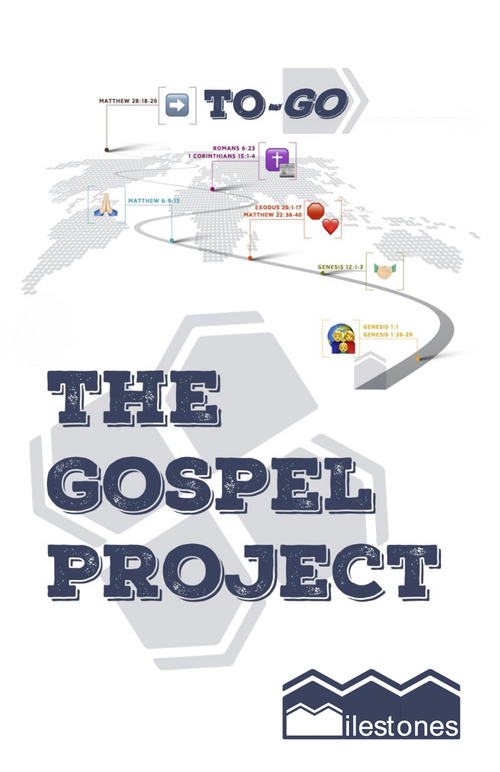Welcome
to the
Gospel Project to Go!
The Gospel Project to-Go (GPTG) is...
The Gospel Project to-Go (GPTG) is a collaborative community resource designed to equip the whole church to disciple the whole church with the Gospel “according to the Scriptures,” and not according to some other distorting frame of reference. It includes resources made to be used in gatherings and in homes (“to-go!”) and will be used in collaboration with the efforts of our children’s and adult discipleship ministries at Crossroads. Collaboration is key for taking full advantage of this tool. The more we all lean in, the more each of each of our efforts will reinforce each other’s efforts, as we grow together in the Gospel.
Navigation: The Road from Genesis to Jesus
The Bible is a big book or, more accurately, a small library of books, 66 books in total—40 in the Old Testament, 26 in the New: “the Scriptures.” It’s easy for adults and kids alike to get lost in its pages, unaware of how each book relates to the others, how the Old Testament relates to the New, and how the Gospel of Jesus Christ is the linchpin holding it and all human history together. GPTG is built around nine passages of Scriptures that are like milestones on the road map of the Bible, salvation history. Seen together, they function like coordinates that help ‘connect the dots’ from Genesis to Jesus, and from Jesus to “the end of the age” (Mt. 28:20), so that we can understand where we are on the road and find our place in God’s story. The Gospel is Christian worldview as history.
GPTG Materials How to Use
Milestone Memory Verse Flash Cards: GPTG begins with a church-wide challenge for everyone to memorize nine passages of Scripture. The flash cards provided with this booklet are intended to help to that end. This may seem like a lot to memorize but this is a long-term effort. The verses selected are essential and provide the foundation for a lifetime of reference and reflection.
Q&A Flash Cards: The ECHO Q&As articulate the foundational doctrinal truths necessary for constructing a Gospel-centered worldview in the form of questions and answers.
To-Go Cubes provide a tactile teaching aid with descriptive titles that help demonstrate the cohesive progression of salvation history from Genesis to Jesus, and from Jesus to us.
Milestones Roadmap Booklet: This booklet is a supplemental resource (for adults and older children). It includes all nine passages of Scripture with Gospel Connections that provide summaries and discussion on each of the selected passages according to the Gospel. Each Gospel Connection shows how the passage in question connects to, prepares for, and/or is fulfilled by the Gospel of Jesus Christ according to the Scriptures. Thematic Subheadings are provided throughout the booklet for reference use. It can be read straight through or you can choose your own adventure :)
Gospel Conversations (Milestones Booklet Part 2, separate) are conversations about life according to the Scriptures. They are written as dialogues between parents and children at various ages and stages or occasions of life. They are designed to show how all our questions find their ultimate answer in Jesus, but how sometimes our questions have to find the right story before they can find the right answer. These conversations are designed to model a way of thinking and speaking—“in accordance with the Scriptures”—that helps people find the Answer they sometimes don’t even know they’re looking for, to help their questions lead them to Jesus.
Q&A Flash Cards: The ECHO Q&As articulate the foundational doctrinal truths necessary for constructing a Gospel-centered worldview in the form of questions and answers.
To-Go Cubes provide a tactile teaching aid with descriptive titles that help demonstrate the cohesive progression of salvation history from Genesis to Jesus, and from Jesus to us.
Milestones Roadmap Booklet: This booklet is a supplemental resource (for adults and older children). It includes all nine passages of Scripture with Gospel Connections that provide summaries and discussion on each of the selected passages according to the Gospel. Each Gospel Connection shows how the passage in question connects to, prepares for, and/or is fulfilled by the Gospel of Jesus Christ according to the Scriptures. Thematic Subheadings are provided throughout the booklet for reference use. It can be read straight through or you can choose your own adventure :)
Gospel Conversations (Milestones Booklet Part 2, separate) are conversations about life according to the Scriptures. They are written as dialogues between parents and children at various ages and stages or occasions of life. They are designed to show how all our questions find their ultimate answer in Jesus, but how sometimes our questions have to find the right story before they can find the right answer. These conversations are designed to model a way of thinking and speaking—“in accordance with the Scriptures”—that helps people find the Answer they sometimes don’t even know they’re looking for, to help their questions lead them to Jesus.
Why GPTG & What’s at Stake?
After he was raised from the dead one of the first thing Jesus did was lead his disciples through an entire Old Testament Bible study—a little anticlimactic, isn’t it?!—but it was necessary for them to be able to recognize him as the risen Christ. They couldn’t recognize the resurrected Christ until they could see his death as the fulfillment of the Scriptures by which alone it can be interpreted and understood: “O foolish ones, and slow of heart to believe all that the prophets have spoken! Was it not necessary that the Christ should suffer these things and enter into his glory? And beginning with Moses and all the Prophets, he interpreted to them in all the Scriptures the things concerning himself” (Lk. 24:27). It was only then that their eyes could be opened to recognize the risen Christ in the breaking of the bread and the cross as “the forgiveness of sins” for “all nations” (Lk. 24:47): it was only then they could see Jesus according to the Scriptures could believe the Gospel.
God is not whoever we say he is or want him to be, and God has a right to speak for himself—and to not to be misrepresented by those who speak of him. The church in every generation has the responsibility as stewards of God’s name and heralds of the Gospel to take care to speak truthfully about God, and not to speak falsely, keeping in mind that even the devil’s lies about God are usually made up of half-truths from the Bible taken out of context but not in alignment with the whole of the Scriptures. The Apostle Paul warned that a gospel that is not “in accordance with the Scriptures” is a false gospel that does not save (1 Cor. 15:1-4), and Jesus warned about the other ditch: “You search the Scriptures because you think that in them you have eternal life; and it is they that bear witness about me, yet you refuse to come to me that you may have life” (Jn. 5:39-40). What we need is the Gospel according to the Scriptures and Scriptures according to the Gospel, because what we believe and how speak about Jesus is nothing less than a matter of life—eternal life—and death.
God is not whoever we say he is or want him to be, and God has a right to speak for himself—and to not to be misrepresented by those who speak of him. The church in every generation has the responsibility as stewards of God’s name and heralds of the Gospel to take care to speak truthfully about God, and not to speak falsely, keeping in mind that even the devil’s lies about God are usually made up of half-truths from the Bible taken out of context but not in alignment with the whole of the Scriptures. The Apostle Paul warned that a gospel that is not “in accordance with the Scriptures” is a false gospel that does not save (1 Cor. 15:1-4), and Jesus warned about the other ditch: “You search the Scriptures because you think that in them you have eternal life; and it is they that bear witness about me, yet you refuse to come to me that you may have life” (Jn. 5:39-40). What we need is the Gospel according to the Scriptures and Scriptures according to the Gospel, because what we believe and how speak about Jesus is nothing less than a matter of life—eternal life—and death.
Everyday Language According to the Gospel
Gospel growth is like language learning, because “gospel” is not just a word but a whole way of speaking. The word itself means “Good News,” and the News refers to an event, the event, that defines all events and the fate of this world. “Gospel,” therefore, isn’t a word that you add to your vocabulary but a word that redefines your vocabulary. It is like the wardrobe in The Chronicles of Narnia. Once you walk through it, there are still trees and people and teatime, but it is all in world, in a story, where everything takes on a whole new meaning in light of the truth of new and fuller picture of reality you were otherwise blind to. The truth of the wardrobe makes a claim on all reality, not just the world on the other side, and once you have become aware of the full picture of reality, all your thinking and speaking has to be brought “in accordance with” the truth.
The Gospel comes as News from the world—from the King—on the other side of the “wardrobe.” The King has come to announce to this world that his world, his kingdom, is coming to invade this earth and bring it under the rule of heaven—and all should prepare accordingly. “The time is fulfilled, the kingdom of God is at hand, repent and believe the Gospel” (Mk. 1:15). Like Paul Revere’s announcement to prepare the troops that “the British are coming!” Christians believe that the King is coming back to this earth, in human history, to raise the dead and transform this earth with the glory of heaven—this is the conclusion to human history. That single truth is far wilder than the wardrobe and witches of Narnia, and it should change the way you see trees and do teatime. The world is opened up with possibility. Life has all new meaning, purpose. History has taken the shape of a story, the Story, in which we’ve all been included.
Lies about the “other world” doesn’t typically spread through explicit denials of it—because then it would have to be named— but simply through a way of thinking and speaking that implicitly denies it. It’s a way of thinking and speaking formed in a worldview in which the full picture of reality has been eclipsed. GPTG is our effort to form a community that speaks the same language because we all belong to the same Story.
The Gospel comes as News from the world—from the King—on the other side of the “wardrobe.” The King has come to announce to this world that his world, his kingdom, is coming to invade this earth and bring it under the rule of heaven—and all should prepare accordingly. “The time is fulfilled, the kingdom of God is at hand, repent and believe the Gospel” (Mk. 1:15). Like Paul Revere’s announcement to prepare the troops that “the British are coming!” Christians believe that the King is coming back to this earth, in human history, to raise the dead and transform this earth with the glory of heaven—this is the conclusion to human history. That single truth is far wilder than the wardrobe and witches of Narnia, and it should change the way you see trees and do teatime. The world is opened up with possibility. Life has all new meaning, purpose. History has taken the shape of a story, the Story, in which we’ve all been included.
Lies about the “other world” doesn’t typically spread through explicit denials of it—because then it would have to be named— but simply through a way of thinking and speaking that implicitly denies it. It’s a way of thinking and speaking formed in a worldview in which the full picture of reality has been eclipsed. GPTG is our effort to form a community that speaks the same language because we all belong to the same Story.


